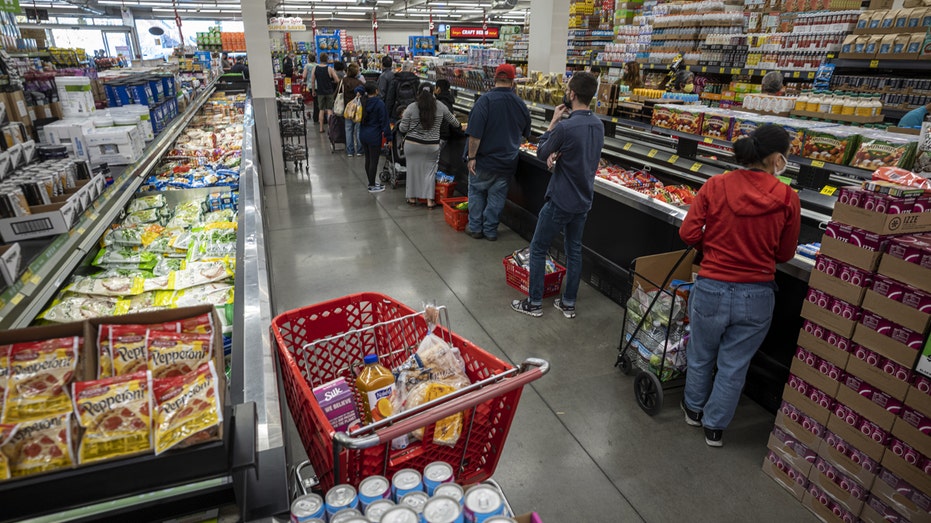Red-hot inflation eating away at most Americans' wage gains
Wages for all employees actually fell 2.4% in December
Kudlow: There's no reason for another inflationary spending bill
‘Kudlow’ examines the Biden administration's ‘failed’ domestic and foreign policy agendas.
The tightest labor market in years is driving rapid wage gains for most workers – the only problem is that red-hot inflation is quickly eroding those increases.
The Labor Department reported on Friday that average hourly earnings for all employees actually decreased 2.4% in December from the same month a year ago when factoring in the impact of rising consumer prices. On a monthly basis, average hourly earnings increased by just 0.1% in December, when factoring in the 0.5% inflation spike.
DECEMBER INFLATION BREAKDOWN: WHERE ARE PRICES RISING THE FASTEST?
By that measure, the typical U.S. worker is actually worse off today than they were a year ago, even though nominal wages are rising at the fastest pace in years. That's because inflation is also surging: The government reported on Friday morning that the consumer price index rose 7% in December from a year ago, marking the fastest increase since June 1982, when inflation hit 7.1%.
The CPI – which measures a bevy of goods ranging from gasoline and health care to groceries and rents – jumped 0.5% in the one-month period from November.

Customers stand in line to check out at a grocery store in San Francisco, California, on Nov. 11, 2021. (David Paul Morris/Bloomberg via Getty Images / Getty Images)
So-called core prices, which exclude more volatile measurements of food and energy, soared 5.5% in December from the previous year – a sharp increase from November, when it rose 4.9%. It was the steepest 12-month increase since 1991.
Price increases were widespread.
Although energy prices fell 1.1% in December from the previous month, they're still up 29.3% from last year. Gasoline, on average, costs 49.6% than it did last year. Food prices have also climbed 6.3% higher over the year, while used car and truck prices – a major component of the inflation increase – are up 37.3%. Shelter costs, which make up nearly one-third of the total increase, jumped 0.4% for the month and 4.1% year-over-year, the fastest pace since February 2007.
"Inflation at 7% is no joke," said Seema Shah, chief strategist at Principal Global Investors. "It’s the highest annual CPI number since 1982 and driven not by energy prices, but by just about everything else."

A shopper walks through the Dollar Tree store in Alhambra, California, on Dec. 10, 2021. (Frederic J. Brown/AFP via Getty Images / Getty Images)
The inflation spike has been bad news for President Biden, who has seen his approval rating plunge as consumer prices rose. The White House has blamed the price spike on supply-chain bottlenecks and other pandemic-induced disruptions in the economy, while Republicans have pinned it on the president's massive spending agenda.
CLICK HERE TO READ MORE ON FOX BUSINESS
In a statement following the data release, Biden touted the decline in month-over-month inflation – at 0.5%, it was down slightly from the 0.8% increase in November – as evidence of a "meaningful reduction in headline inflation" and demonstrative of falling food and gas prices.
"At the same time, this report underscores that we still have more work to do, with price increases still too high and squeezing family budgets," the president said. "Inflation is a global challenge, appearing in virtually every developed nation as it emerges from the pandemic economic slump. America is fortunate that we have one of the fastest-growing economies."





















